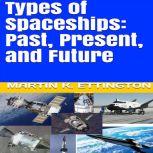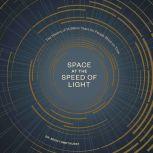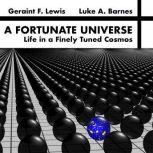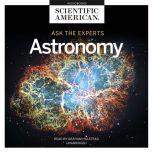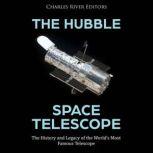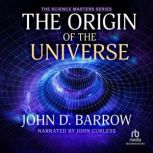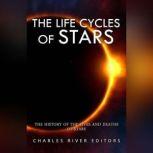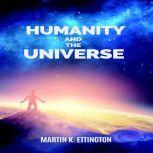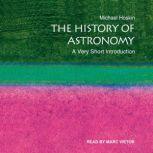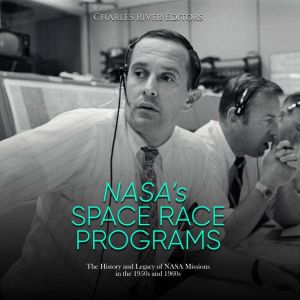
Details
NASA's Space Race Programs: The History and Legacy of NASA Missions in the 1950s and 1960s
Author: Charles River Editors
Narrator: Bill Caufield
Unabridged: 8 hr 15 min
Format: Digital Audiobook
Publisher: Findaway Voices
Published: 07/18/2023
Genre: Science - Astronomy
Synopsis
Today the Space Race is widely viewed poignantly and fondly as a race to the Moon that culminated with Apollo 11 “winning” the Race for the United States. In fact, it encompassed a much broader range of competition between the Soviet Union and the United States that affected everything from military technology to successfully launching satellites that could land on Mars or orbit other planets in the Solar System. Moreover, the notion that America “won” the Space Race at the end of the 1960s overlooks just how competitive the Space Race actually was in launching people into orbit, as well as the major contributions the Space Race influenced in leading to today’s International Space Station and continued space exploration.
The Apollo space program is the most famous and celebrated in American history, but the first successful landing of men on the Moon during Apollo 11 had complicated roots dating back over a decade. Landing on the Moon presented an ideal goal all on its own, but the government’s urgency in designing the Apollo program was actually brought about by the Soviet Union, which spent much of the 1950s leaving the United States in its dust (and rocket fuel). In 1957, at a time when people were concerned about communism and nuclear war, many Americans were dismayed by news that the Soviet Union was successfully launching satellites into orbit.
Throughout the 1960s, NASA would spend tens of billions on missions to the Moon, the most expensive peacetime program in American history to that point, and Apollo was only made possible by the tests conducted through earlier missions. Of course, by the time it was all done, Americans sure felt the cost was worth it as they watched the first live shots of astronauts Neil Armstrong and Buzz Aldrin walking on the Moon. As he left his first footprint on the Moon, Armstrong transmitted one of the 20th century’s most famous phrases: “That’s one small step for man, one giant leap for mankind.”
by Martin K. Ettington
This book is the seventh volume of “The Living in Space Series”. Each volume focuses on one particular technology of living in space.In this book the focus is on spaceships used to access and travel in space. In my research I was pretty ...
Published: 09/24/2020
by Dr. Becky Smethurst
From the big bang to black holes, this fast-paced tour of time and space for the astro-curious unlocks the science of the stars to reveal fascinating theories, surprising discoveries, and ongoing mysteries in modern astronomy and astrophysics.Before...
Published: 06/02/2020
by Geraint F. Lewis and Luke A. Barnes
Over the last forty years, scientists have uncovered evidence that if the Universe had been forged with even slightly different properties, life as we know it - and life as we can imagine it - would be impossible. Join us on a journey through how we...
Published: 12/21/2017
by Scientific American
For going on two decades, Scientific American’s “Ask the Experts” column has been answering reader questions on all fields of science. We’ve taken your questions from the basic to the esoteric and reached out to top scientist...
Published: 11/24/2020
by Charles River Editors
On April 24, 1990, the Space Shuttle Discovery lifted off from Kennedy Space Center on the Space Shuttle Program’s 35th mission, but this was no ordinary mission. In its payload bay, Discovery was carrying the Hubble Space Telescope, with the...
Published: 04/16/2021
by John D. Barrow
There is no more profound, enduring or fascinating question in all of science than that of how time, space, and matter began. Now John Barrow, who has been at the cutting edge of research in this area and has written extensively about it, guides us ...
Published: 06/29/2018
by Charles River Editors
When people look up into the night sky, the stars seem fixed and immutable, as unchanging as the darkness of space itself, but the truth is that stars are born, live and die in a never-ending cycle of creation and annihilation. These cycles stretch...
Published: 01/27/2021
by Martin K. Ettington
The Universe is a very big place and has many mysteries. Most people don't realize just how mysterious it is. Scientists are stumped by many of the conundrums which Astronomy reveals. In this book I want to give readers a sense of the grandeur,...
Published: 06/04/2019
by Michael Hoskin
This is a fascinating introduction to the history of Western astronomy, from prehistoric times to the origins of astrophysics in the mid-nineteenth century. Historical records are first found in Babylon and Egypt, and after two millennia the arithme...
Published: 06/08/2021

